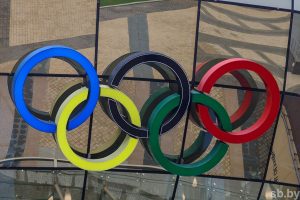China plans to host the first-ever carbon neutral Winter Olympic Games this year in an effort to set a benchmark for the International Olympic Committee’s (IOC) mission to make the Games carbon positive by 2024.
However, a smog-prone Beijing’s air quality is a big hurdle in China’s goal. While the pollution level in the capital city has fallen since the country won the bid for the Winter Games in 2015, the Ministry of Ecology and Environment has said smog risks remain ‘severe’.
Also read: Are drones replacing fireworks to light up the sky during festivities?
Speaking to reporters on Thursday, ministry spokesman Liu Youbin said, “When the time comes, Beijing and Hebei will be guided to adopt reasonable environmental protection measures in accordance with the law.”
He dismissed the rumours about polluting heavy industries in the area being shuttered from January 1.
China plans to power all 26 venues fully with renewable energy. This sits with President Xi Jinping’s goal of making the country carbon neutral by 2060. Thousands of hectares of trees have been planted in Beijing and Hebei , solar farms have been built and hundreds of enterprises relocated.
Also read: Beavers enter Arctic tundra: Why is that concerning?
About 200 km northwest of Beijing lies its cohost for the Games – Zhangjiakou city. It will be host to skiing and snowboarding events.
“When I came to Beijing a few years back I would suffer with rhinitis because of pollution, but the air quality in Beijing-Tianjin-Hebei has improved a lot. I think the air quality at Zhangjiakou ski resort is even better than some foreign ski resorts,” 26-year-old amateur skier Deng Zhongping said, as per Reuters.
The average concentrations of PM2.5 in the Beijing-Tianjin-Hebei region in 2016 was 71 micrograms per cubic metre. It soared to more than 500 micrograms over winter. The term fine particles, or particulate matter 2.5 (PM2.5), refers to tiny particles or droplets in the air that are two and one half microns or less in width. The average fell to 40 micrograms from January to September this year.
Also read: Antarctica’s ‘doomsday’ glacier melting at concerning rate say scientists
The reading in Beijing was 33 micrograms in the first three quarters. The World Health Organization recommends a level of 5 micrograms.
“China will win many medals at the Winter Olympics, but the smog … could plunge the Games into difficulties,” the Washington-based International Fund for China’s Environment said earlier this year.






